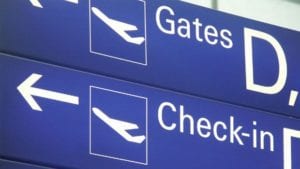Clear has announced yet another expansion of its TSA PreCheck enrollment program, this time to seven additional airports, enhancing convenience for travelers across the United States.

The biometric screening service, which is authorized by the Department of Homeland Security (DHS) as a TSA PreCheck enrollment provider, is now in place at 40 locations nationwide. The new locations include Boston Logan International Airport, Cleveland Hopkins International Airport, John Glenn Columbus International Airport, Kansas City International Airport, Palm Beach International Airport, Raleigh-Durham International Airport, and Tulsa International Airport.
Travelers can enroll in TSA PreCheck through Clear without needing an appointment, significantly speeding up the application process. Applicants must bring their passport or another approved form of identification to complete their enrollment with a Clear representative.
“TSA PreCheck with enrollment by Clear provides a fast and efficient airport experience,” said Clear’s CEO, Caryn Seidman-Becker, in a statement. “This is a win-win for U.S. travelers who will have access to more enrollment locations, expanded hours, and other benefits.”
Travelers can opt for TSA PreCheck enrollment at a one-time fee of $77.95 or bundle it with a Clear Plus membership for $199.95. The annual renewal fee for Clear membership is $189. Clear Plus members use fingerprints or eye scans for identification, enabling faster passage through airport security—though Clear is preparing to launch a revamped system based on facial recognition this year.
TSA PreCheck allows travelers to keep their shoes, belts, and light jackets on and leave their laptops and liquids in their bags, facilitating a smoother security check process.
Earlier this summer, a bipartisan bill introduced by Representatives Clay Higgins (R-La.) and Bill Foster (D-Ill.) to evaluate the TSA’s use of digital identification systems moved forward to the House floor after passing a key committee. The legislation requires the TSA to produce a comprehensive report on the impact of digital IDs on U.S. homeland security, which will include an assessment of the current state of digital identity ecosystems and an analysis of their benefits and risks.
Source: Travel + Leisure
–
July 18, 2024 – by Tony Bitzionis







Follow Us